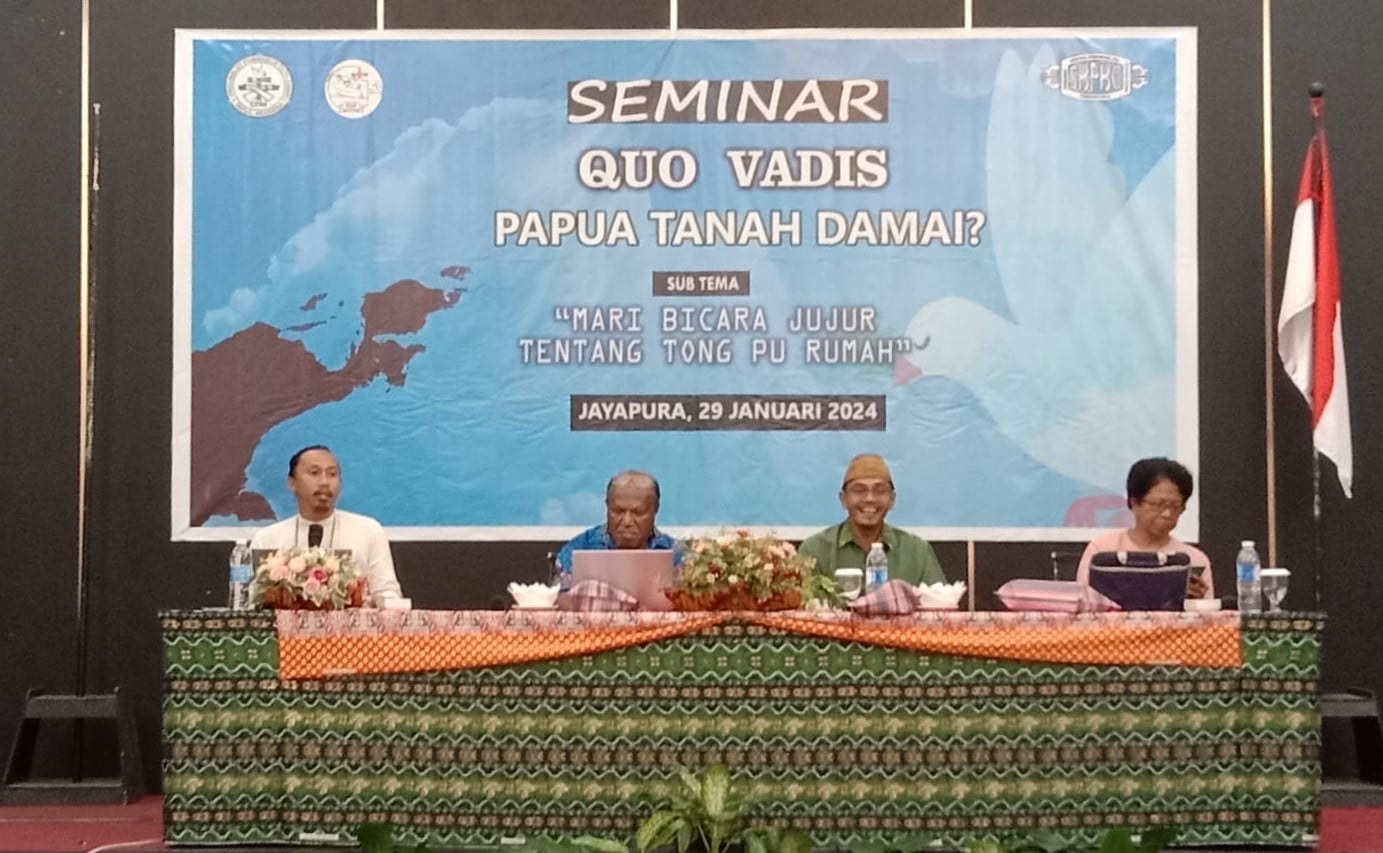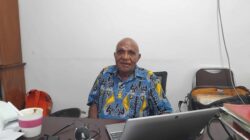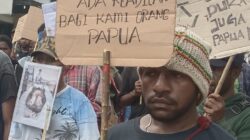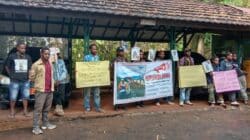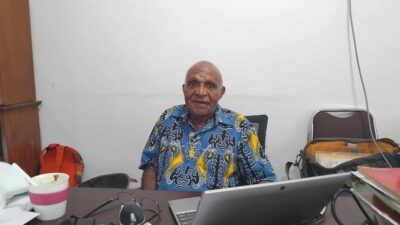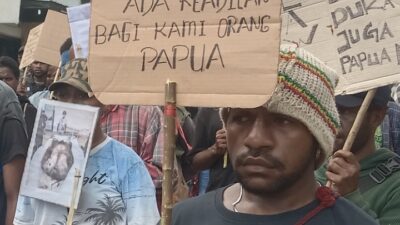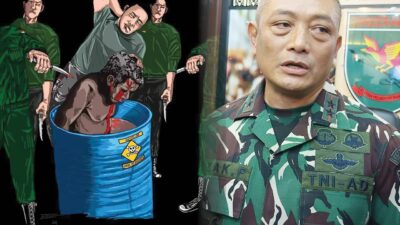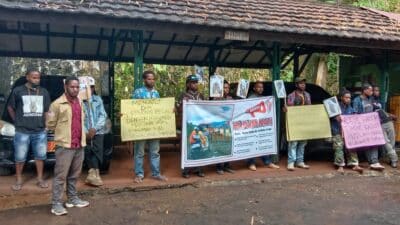Jayapura, Jubi – Jayapura Bishop Yanuarius Theofilus Matopai You emphasizes that violence and conflict in Papua can only be resolved through peaceful dialogue. This sentiment was expressed during a public discussion organized by the Justice, Peace, and Integrity of Creation Secretariat of the Franciscans in Papua, held in Jayapura City on Monday (29/1/2024).
The Bishop of Jayapura highlighted that Papua has witnessed the longest history of armed conflict in Indonesia. He pointed out that the armed conflict between the security forces (TNI/Polri) and the West Papua National Liberation Army (TPNPB) has resulted in violence, murders, displacement, and disrupted harmony among the residents of Papua.
“In many places where violence and even homicides occur, there is displacement. People are compelled to leave their villages, moving elsewhere.The plight of these displaced people is heartbreaking as they lead challenging lives. Meanwhile, their areas are controlled by military or police forces, constantly in conflict with the TPNPB,” he added.
Yanuarius stressed the importance of peaceful dialogue to address the root causes of conflict in Papua. According to him, the root causes of the Papua conflict have been formulated by the Indonesian Institute of Sciences (LIPI, now the National Research and Innovation Agency or BRIN) in the Papua Road Map document.
LIPI identifies four root causes of the Papua conflict: development failures, marginalization and discrimination against indigenous Papuans, state violence and allegations of human rights violations, and controversies over the history and political status of Papua.
“People should be given the opportunity to speak. Dialogue means leaders of the country sitting together with the people, listening to their thoughts and feelings, and vice versa. Dialogue provides an opportunity for people to speak, then find the best solutions,” explained Yanuarius.
The Bishop emphasized that the government must open a space for peaceful dialogue to resolve conflicts in Papua. Bishop Yanuarius stated that dialogue is a part of respecting the dignity and honor of the people of Papua.
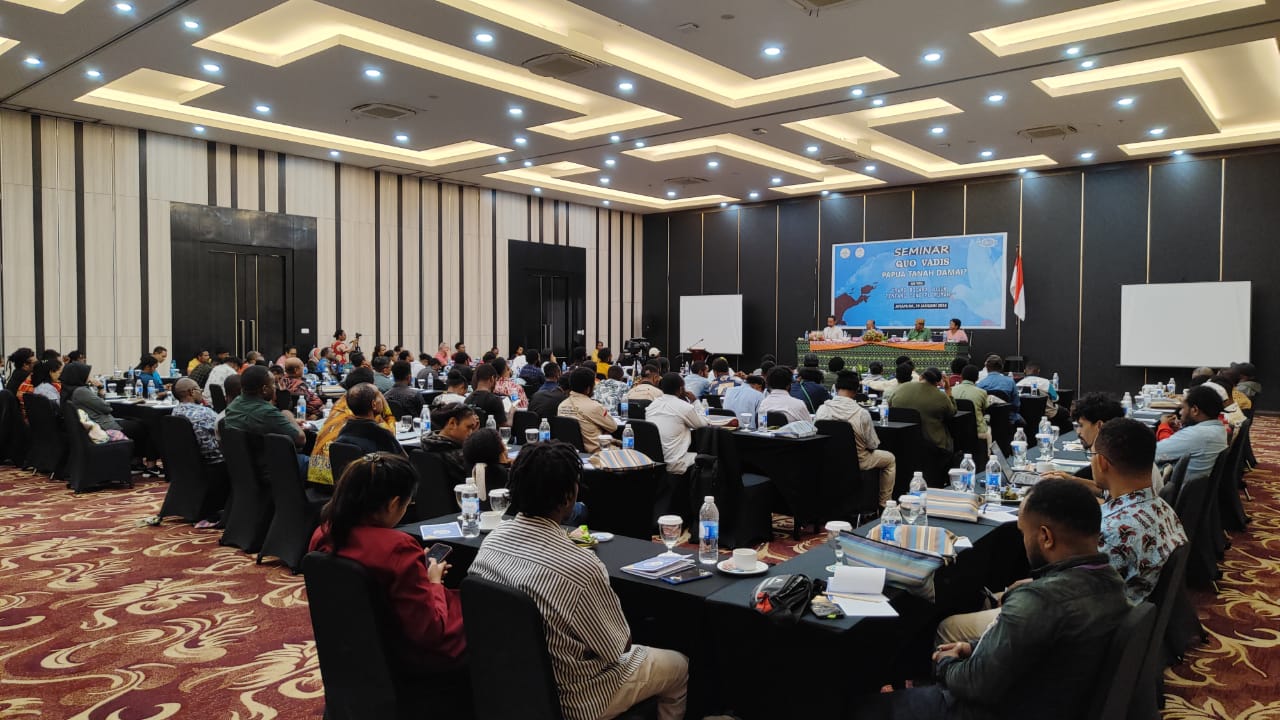
“Why are we at fault? What have we done wrong that the central government and the president let us live in these conditions? So far, the government has had the notion that if there is a dialogue, Papua will become independent. Do not jump to conclusions; we need to have a dialogue first. There will be statements in the dialogue that can be accepted, and some that cannot be accepted; it depends on the authority of the government,” Bishop Yanuarius urged.
Bernada Materay, a History lecturer at Cenderawasih University, emphasized that it is time to break the chain of conflict. However, Materay cautioned that all parties must thoroughly understand the issues in Papua before taking action.
“We need to speak honestly for a proper and correct resolution. It is time to stop the violence,” she stated.
Nursalim Arrozy, a figure from Nahdlatul Ulama in Papua, emphasized that peaceful dialogue must be accompanied by sincerity and must not involve hypocrisy. Arrozy stressed the need for active involvement of both indigenous Papuan and non-Papuan communities who have long resided in Papua.
“A serious dialogue is necessary. So far, it has only been discourse that remains unimplemented. Without dialogue, genuine peace is impossible in Papua,” he asserted. (*)


